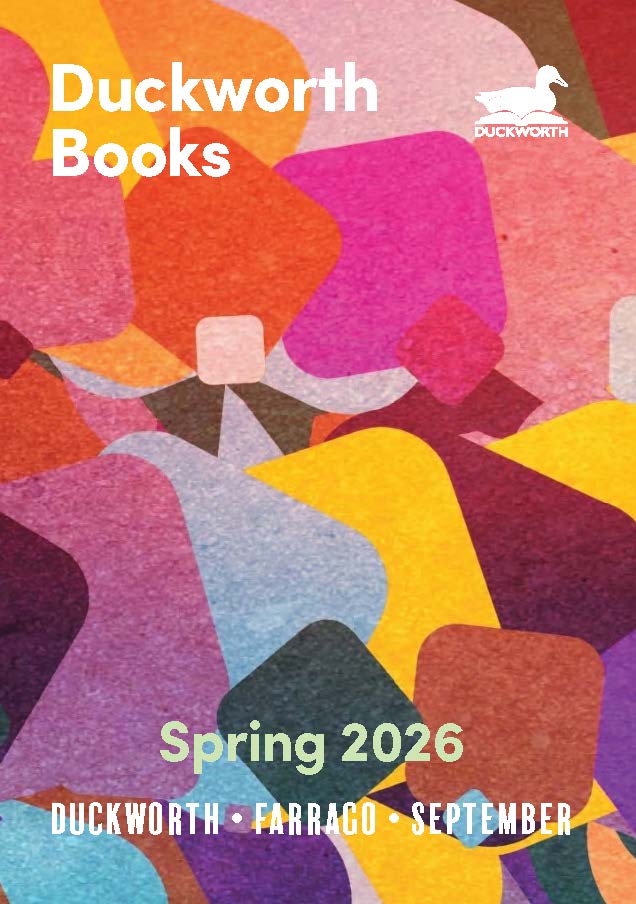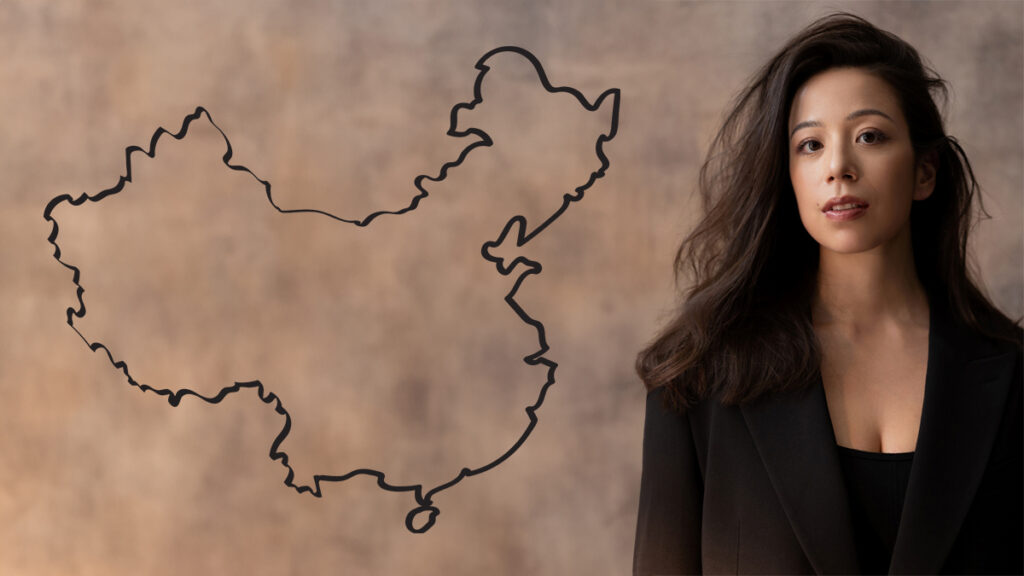
Novel Research: 5 Books Offering Social Critiques of Past-Century China
Social novels are a strong literary tradition in China, and many Chinese satirists – from Yu Hua to Qian Zhongshu to Lu Xun – accompanied me while I was writing my debut novel, River East, River West. The books on this list are often both wrenchingly funny and heartbreaking, using a mix of absurdism and social realism to convey scathing critiques of the societies that produced their characters.
To Live
Yu Hua
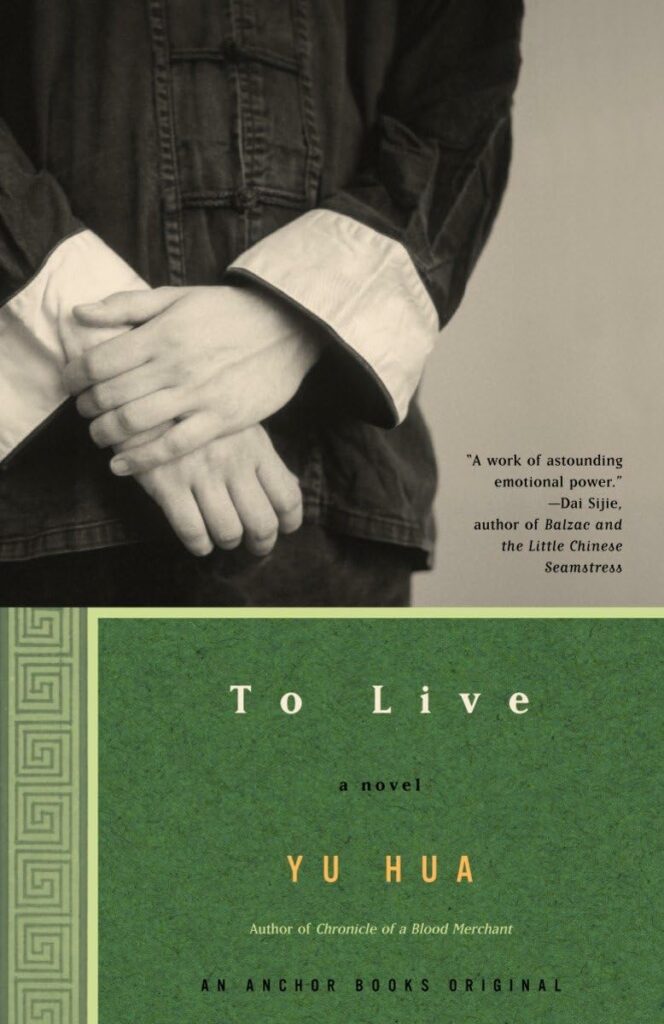
Yu Hua (whose nonfiction book China In Ten Words is published by Duckworth!) earned international acclaim with this epic, decade-spanning tale on the life of Fugui, a man whose life parallels the seismic changes of 20th century China.
From spoiled, gambling-addicted young scion to army conscript to ordinary citizen living under the Communist party regime in a new China, Fugui’s fortunes reflect the century’s wars, revolutions, and reforms, and are rendered in a deeply personal, heart-wrenching story of familial joys and losses.

This novel was a major inspiration for how I structured the narrative of my protagonist, Lu Fang, and made his personal fortunes track China’s political and economic upheavals at the millennium’s turn–to show how individual fates and a nation’s political fate can rise and fall in tandem. To Live has been adapted into an excellent 1994 movie by Zhang Yimou, starring Ge You and Gong Li.
Brothers
Yu Hua
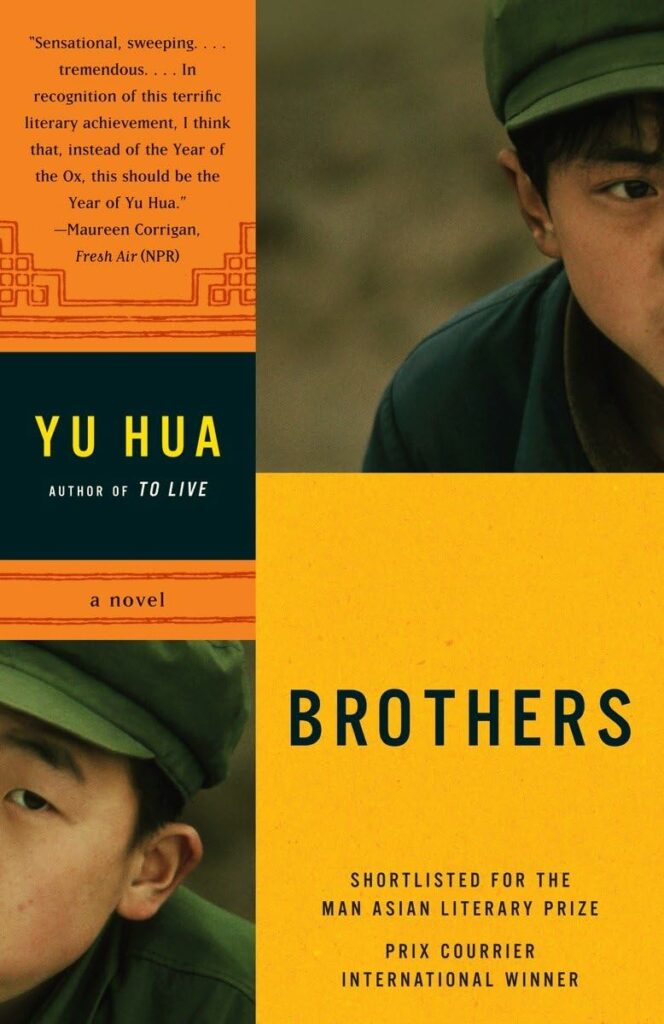
The two volumes of the “Brothers” series were books I remember seeing everywhere in Chinese bookstores growing up. This bawdy, frenetic social satire was an enormous success with the Chinese public when it was published in 2005-6 (and, remarkably, was not banned).
The tale follows two step-brothers, the enterprising Baldy Li and the upstanding Song Gang, growing up in the fictional Liu Town. Characteristically, Yu Hua does not hold back from plots weaving the personal misfortunes of the townspeople into the era’s political changes, but this

book is also preoccupied with the rabid economic opportunism overtaking all echelons of Chinese society post reform and opening. Absurdist schemes abound as Baldy and Li navigate factory work, entrepreneurial campaigns, beauty pageants, conmen, and plenty of farcical side-stories that put Liu Town on the national map.
This book is laugh-out-loud funny and bitingly satirical.
Fortress Besieged
Qian Zhongshu
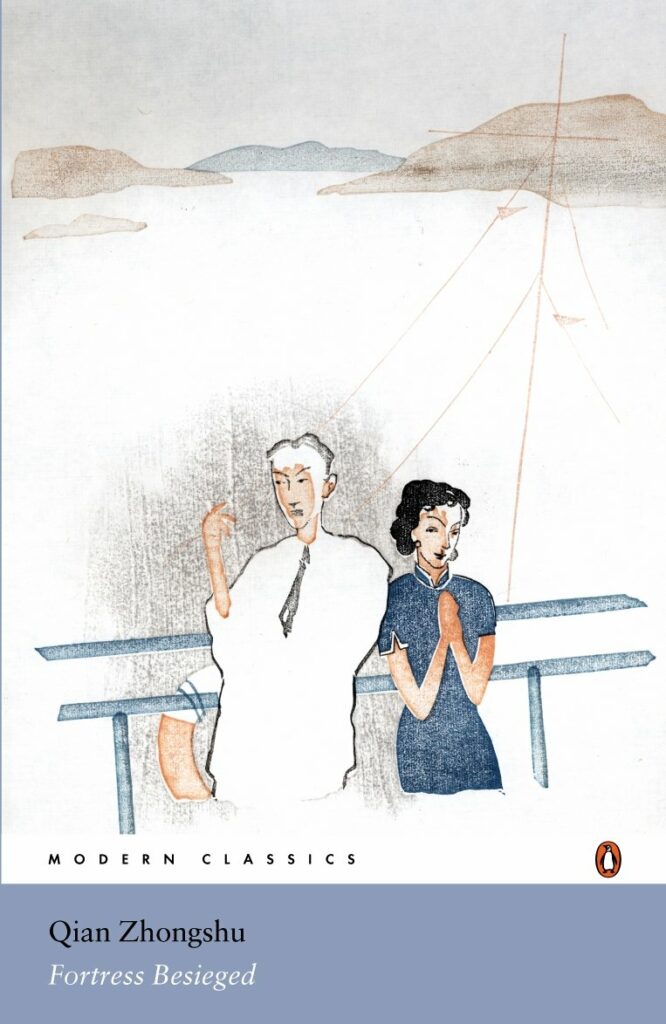
Published in 1947, Fortress Besieged is a social satire about academia, the wealthy intelligentsia, and the pull of Western ideas in the first half of the 20th century.
Protagonist Fang Hongjian returns from a European study abroad with nothing to show but a fake degree, only to find Shanghai under the looming shadow of Japanese occupation. Fang accepts a dodgy teaching offer at the rural San Lü University and undertakes a perilous wartime trip there with several other academics, all entangled in competing romances and jealousies.

On campus, Fang navigates preposterous academic politics as the newly-established university succumbs to ideological fashions increasingly dissonant with the wartime reality outside, all while juggling a complicated courtship and eventual marriage with a colleague.
Whip-smart and cynical, this novel is a riveting example of a campus satire and work of cultural commentary preceding the establishment of the People’s Republic.
Running Through Beijing
Xu Zechen
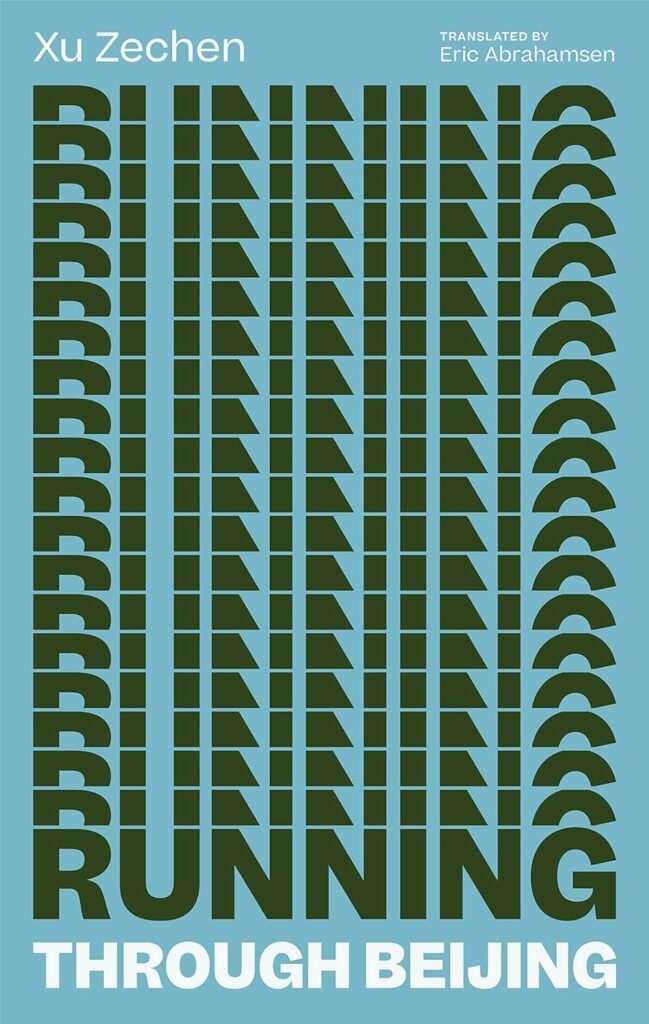
Known in China as a “京飘” – ”drifting in Beijing” – novel, this slim volume is packed with zany energy and social realism.
The protagonist, Dunhuang, is a young man who just served jail time for selling fake IDs in 2000s Beijing: a wily and big-hearted hustler, he charms and fights his way into securing shelter and subsistence day-to-day, with each looming night the precarious possibility of being out on the street. He turns to selling the pornographic DVDs his erstwhile lover, Xiaorong, refuses to peddle, he dodges plainclothes police and tries to carve out a living in the cacophonous capital.

This could easily be a bleak book about outsiders to Beijing falling prey to its heartless, capitalist fervor, but there is deep humanity in how Dunhuang and his buddies always look out for each other – a fight there, a scam there, but also always a helping hand, forgiveness, and a line for survival.
The Real Story of Ah Q
Lu Xun
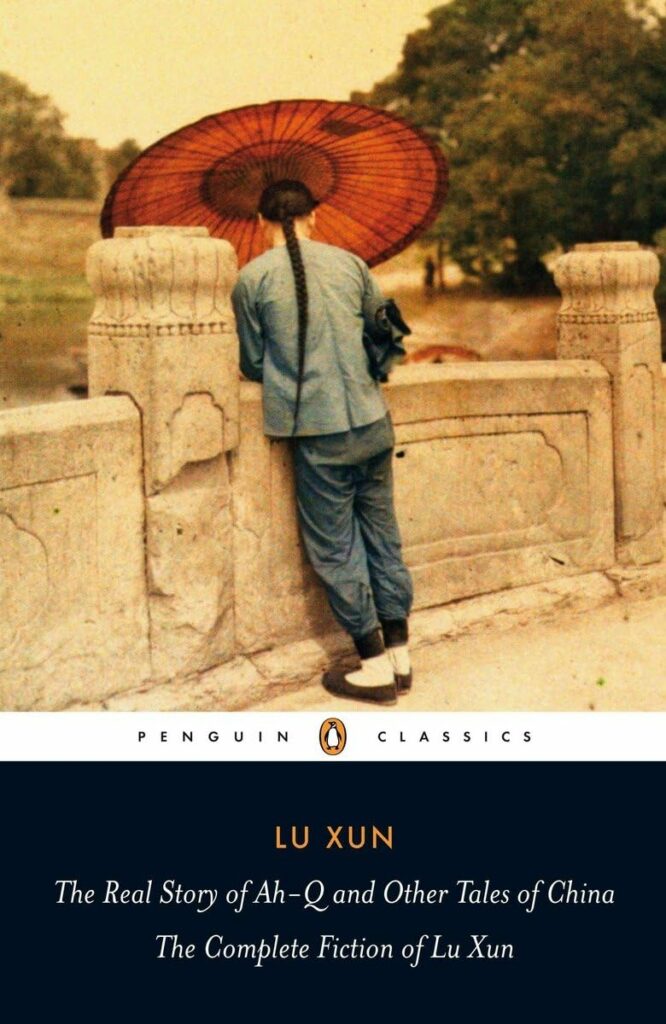
Lu Xun is a canonical writer of the 20th century every schoolchild in China has studied; his prose, both elegant and merciless, adeptly unveils the social realities of the turbulent pre-WWII China he inhabited.
The story of Ah-Q was first serialized in 1921-1922, and is set in the aftermath of the 1911 Xinhai revolution, which overthrew the Qing Dynasty and helped establish the Republic of China.
Ah Q is a satirical character representing the backwards, conservative thinking plaguing the country at the turn of the century: he kisses up to the more

powerful and abuses those weaker than him, and every humiliation he suffers, he finds a way of mentally contorting into a personal triumph through his “spiritual method of victory.”
Ah Q is an everyman that reflects the corrosive powers of the competing ideological currents tearing through Chinese society at the time; his mental gymnastics offer a poignant critique of the “follower mentality” enabling self-anesthetization, self-justification, and cognitive dissonance for collaborators in an oppressive regime.
This, and any of Lu Xun’s fiction and nonfiction, is well worth a read for anyone interested in the foundational influences on modern Chinese social criticism.
Discover Aube Rey Lescure's work
Aube Rey Lescure is a French-Chinese writer who grew up between Provence, northern China and Shanghai. She worked in foreign policy before turning to writing fulltime. Her writing has appeared in Guernica, Best American Essays, Litro and elsewhere. River East, River West is her debut novel.
A darkly glittering literary debut that traces a mixed family’s troubled trajectory through developing China.
‘Poignant and propulsive, thoughtful and moving’ – Jean Kwok, bestselling author of Searching for Sylvie Lee
A mesmerising reversal of the east–west immigrant narrative set against China’s economic boom, River East, River West is a deeply moving exploration of race, identity and family, of capitalism’s false promise and private dreams.
Shanghai, 2007: feeling betrayed by her American mother’s engagement to their rich landlord Lu Fang, fourteen-year-old Alva begins plotting her escape. But the exclusive American School – a potential ticket out – is not what she imagined.
Qingdao, 1985: newlywed Lu Fang works as a lowly shipping clerk. Though he aspires to a bright future, he is one of many casualties of harsh political reforms. Then China opens up to foreigners and capital, and Lu Fang meets a woman who makes him question what he should settle for…



